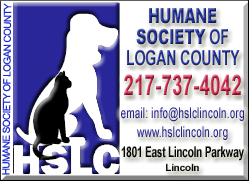 Selvaggio in 2001 was a flight attendant working for American
Airlines. On Sept. 11, she found herself in New York City, just a
short distance from the World Trade Center. Selvaggio in 2001 was a flight attendant working for American
Airlines. On Sept. 11, she found herself in New York City, just a
short distance from the World Trade Center.
In her talk she described the events of the day, days after and
the long-term effects it has had on her personally.
For Selvaggio the events of Sept. 11 began the day before, when
she and her best friend, another American Airlines flight attendant,
boarded their flight for New York. They were excited about the trip
because it was going to include a long layover in the city, and they
were looking forward to getting out and seeing the sights.
At 1 a.m. on Sept. 11 they checked into their hotel, went out to
eat, and by 3 a.m. they were in their rooms sleeping.
Selvaggio recalled hearing sirens as she slept but not giving it
a lot of thought. She relayed that in a city like New York, you hear
sirens, they wake you up, you go back to sleep; it's just part of
the process.

The reality of what was happening in New York was brought to her
attention by her phone ringing that morning and her friend telling
her to turn on the television.
"When I did, I asked, 'What country is this?' My friend
responded, 'This is just down the street from us,'" Selvaggio said.
For Selvaggio, that was the beginning of real fear as she
processed what was going on around her. She realized there was a
possibility her life could end that day.
A portion of the safety precautions issued on Sept. 11 included
the grounding of all flights. Across the United States, all
airplanes were left on their tarmacs.
For Selvaggio and her fellow crew members, they were grounded
indefinitely, with orders from the airline to stay put in the hotel
so that when flights resumed, there would be crews available.
One of Selvaggio's greatest concerns was that she wasn't able to
get through to her family in Illinois. Her husband, Andy, was a
Springfield police officer, and she knew he was on duty. Her
2-year-old daughter would be with her mother-in-law for the day, as
that was the normal routine for the family.
As Selvaggio tried to call home, she found that her cellphone
wouldn't work because she had Verizon, and the Verizon tower had
been atop the World Trade Center. Using land lines was practically
impossible as they were jammed with literally thousands of calls,
with people trying to find loved ones, and loved ones like Selvaggio
calling home.
What Selvaggio didn't know at the time was that there was a
terrible turmoil in Springfield.
When the news made it to her husband that an American Airlines
plane had hit the World Trade Center, he left work and went home to
check his wife's flight schedule. However, when he found her
schedule, he misread it and believed that she had boarded a flight
at 7:32 a.m. bound for Chicago.
At that moment he believed that his wife was among the lives lost
in the first crash.
When Selvaggio was finally able to make a phone call, she called
her mother-in-law first, not realizing what the family was going
through and believing her husband would be at work.
By that time, Selvaggio's husband was at home with his brother,
who had walked away from his shift also as a Springfield police
officer when his supervisor told him that he could not leave.
Selvaggio's sister-in-law was with her mother-in-law and baby,
and Selvaggio's own parents could not be reached by phone because
they were hearing-impaired.
[to top of second column] |

When her mother-in-law answered the phone, the shock of
Selvaggio's voice caused her to black out. The sister-in-law grabbed
the phone and kept saying, "Call Andy, call Andy."
After hours of grief and uncertainty, the Springfield Selvaggios
learned that their loved one had survived the terrible ordeal in New
York.
For Selvaggio herself, it was days of torture as she was trapped
with no way to get home. She described living for days in the same
clothing and the happiness she felt when her husband agreed that she
needed to go shopping.
She remembered the day the airline crew decided they had to do
something to help and offered to give blood, only to be told there
was no need as there had been no survivors.
She remembered the dirt and dust and the smell of burning
electrical wires, a smell that still haunts her.
And she remembers a strong determination to reach Illinois before
her daughter's 2nd birthday, which she did.
After several days, her best friend's husband arrived in New York
by car, and Selvaggio rode back to Ohio with them. They drove
straight through, but on that day, she looked up and saw planes in
the air. She took a flight to Chicago, where her car was parked, and
drove home to Springfield.
For months after that, Selvaggio suffered from post-traumatic
stress, she experienced anxiety attacks, and in general had a hard
time recovering from what had been a near miss with death.

Three months after 9/11, she boarded her first flight as an
American Airlines flight attendant. Selvaggio recalled walking
through the boarding tunnel in tears, shaking in fear. She went
straight to the pilot and expressed to him that she needed some kind
of reassurance if she was going to be able to go through with the
flight.
"He put his hands on either side of my face, and said to me,
'Vicki, there are three air marshals on this plane,' and that was
good enough."
However, Selvaggio did not stay in her profession. Within two
years, she would leave her career of flying.
As she concluded her presentation, Selvaggio said, "I don't know
what your 9/11 moment is, but when I have mine, I draw from a higher
power and remember to just breathe."
During questions and answers, Selvaggio was asked how she reacted
at the news that Osama bin Laden had been captured and killed.
She responded, "I wanted to crack open a bottle of champagne."
She went on to say that she appreciated greatly all the effort
that the U.S. military went through, and that in the end the death
of bin Laden was something that needed to happen. In the audience
around her Thursday night, some whispered in agreement and several
nodded their heads.
[By NILA SMITH]
 |